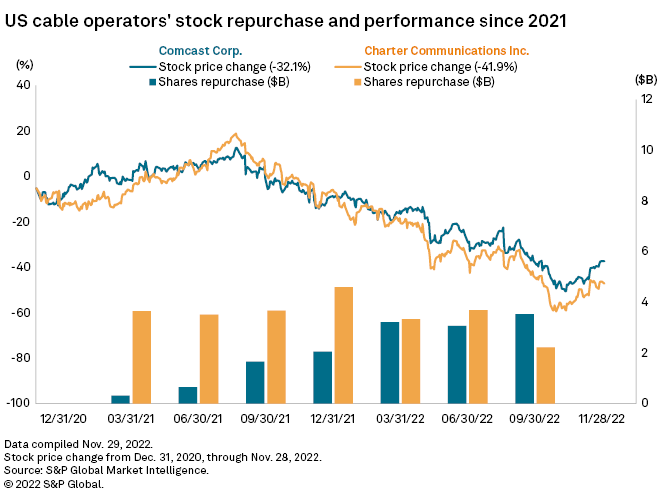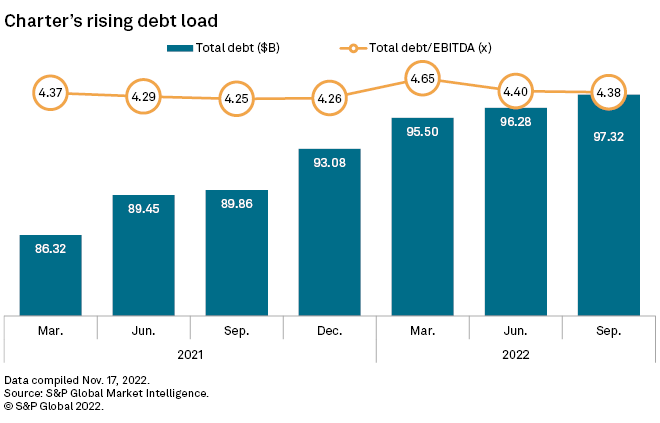Falling stock prices have created a share repurchase opportunity for some cable operators, but rising interest rates are complicating buybacks for others.
Shares of the United States' two largest cable providers, Comcast Corp. and Charter Communications Inc., had fallen 32.1% and 41.9% year to date as of Nov. 28. A broad market sell-off and increased broadband competition have weighed on both companies. In particular, fixed wireless offers from Verizon Communications Inc. and T-Mobile US Inc. have made cable broadband subscriber growth harder to achieve.

In the face of these declines, some cable operators have stepped up their stock buyback programs. Comcast, WideOpenWest Inc. and Cable One Inc. all repurchased more shares in the third quarter compared to the same period a year earlier.
Cable One's repurchases jumped 576% in the period following the authorization of a $450 million stock buyback program. WideOpenWest said in November that it will repurchase up to $50 million of its shares over the next 18 months.
Comcast repurchased $3.53 billion shares in the third quarter. The company increased its share repurchase program authorization to $20.0 billion in September from a previous authorization of $10 billion.
"We think our stock is attractive," Comcast CEO Brian Roberts said during the company's October earnings call.

The Inflation Reduction Act, which passed in August and is expected to take effect in 2023, imposes a nondeductible 1% excise tax on certain corporate stock buybacks. Shortly after the act was passed, Comcast's buyback activity jumped, which analysts said was likely a move to get ahead of future taxes.
Comcast CFO Michael Cavanagh said during the company's October earnings call that the cable operator would maintain a net leverage ratio around 2.4x. "Step one, put money back in the business" and invest in the network, Cavanagh said of the company's capital priorities. "Two, keep a strong balance sheet." The third priority is returning capital to shareholders.
In contrast, rising interest rates and a high debt load have caused Charter to reduce its stock buybacks, an activity the company historically paid for with debt. Charter's total debt jumped to $97.32 billion in the third quarter from $89.86 billion a year earlier.
Charter spent $2.23 billion on share repurchases in the third quarter, down from $3.67 billion a year earlier.

 | * See Kagan's 2022 Economics of Basic Cable Networks report * See recent TMT capital markets activity |



